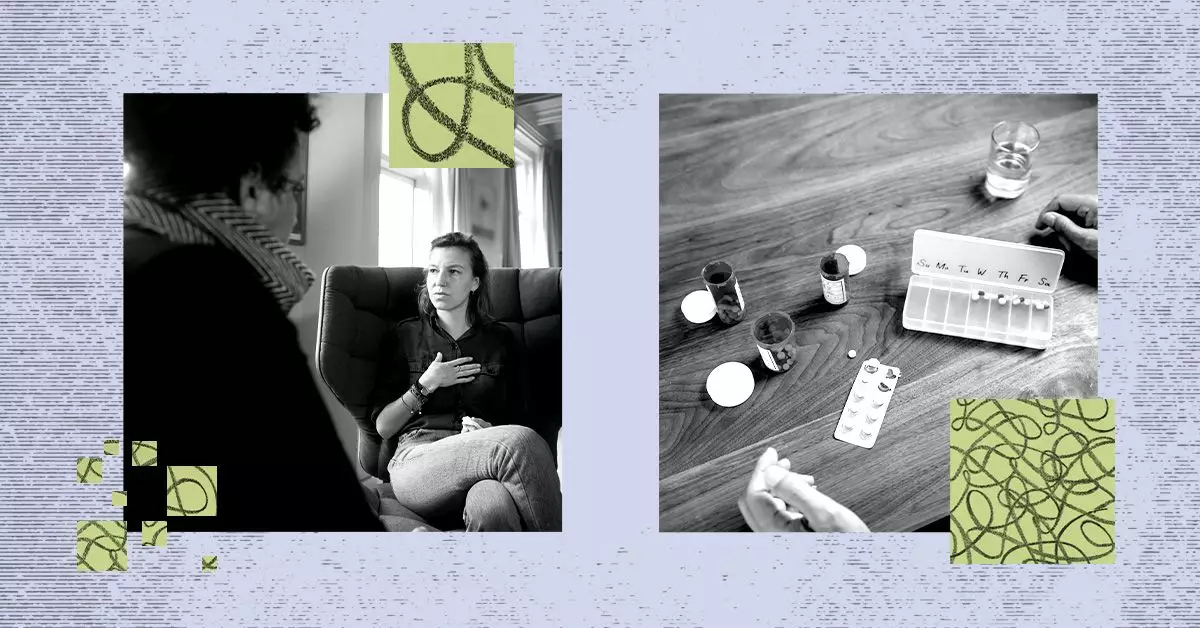Depression is far more than a passing mood; it is a complex mental health condition that affects millions of individuals worldwide. Recognized by persistent feelings of sadness, lack of interest in previously enjoyable activities, and overall feelings of despair, depression can also manifest in physical symptoms like exhaustion and sleep disturbances. The breadth of depression’s effects necessitates a diverse range of treatment options tailored to each unique individual.
Before delving into treatment options, it’s essential to understand the different classifications of depression. Major depressive disorder (MDD) is characterized by severe symptoms that hinder daily life, while persistent depressive disorder (dysthymia) denotes a longer-lasting form of depression, albeit with less intense symptoms. Additionally, seasonal affective disorder (SAD) typically surfaces during specific seasons, often winter, when natural sunlight is scarce. These varied types of depression illustrate the importance of an individualized treatment plan.
One of the most widely recommended treatments is psychotherapy, commonly referred to as talk therapy. A healthcare professional might suggest one of several therapeutic approaches based on the patient’s needs.
Cognitive Behavioral Therapy (CBT) has emerged as a prominent method that targets maladaptive thought patterns and behaviors. By helping patients reframe negative thoughts, CBT aims to foster healthier coping mechanisms and emotional responses.
Interpersonal Therapy (IPT) is another effective approach, focusing primarily on enhancing communication skills and building supportive relationships. Improving an individual’s interaction with their social circle can alleviate feelings of isolation and hopelessness often associated with depression.
Alternatively, Psychodynamic Therapy delves deeper into the emotional traumas and unconscious motivations that may underlie a person’s depressive symptoms. This form of therapy seeks not only to provide relief but also to foster profound personal insights and healing.
Alongside psychotherapy, medication can be instrumental in alleviating depressive symptoms. Antidepressants alter the brain’s chemical production, particularly neurotransmitters associated with mood and stress responses. While many individuals respond positively to these medications, side effects can occur, making ongoing communication with healthcare providers critical.
The antidepressant landscape is varied. Selective Serotonin Reuptake Inhibitors (SSRIs) are commonly prescribed due to their favorable side effect profiles. These include popular medications like fluoxetine (Prozac) and sertraline (Zoloft). For individuals with more significant depressive symptoms, Tricyclic Antidepressants (TCAs) may be effective, despite their propensity for side effects.
Another category includes Monoamine Oxidase Inhibitors (MAOIs), which can also yield substantial benefits but require dietary changes to avoid interactions. Lastly, Novel Antidepressants such as mirtazapine or other NaSSAs can offer innovative solutions when traditional medications fail.
Alternative Treatments and Emerging Options
Given that one size rarely fits all, exploring alternative treatments can also be vital. Brain stimulation therapies, such as electroconvulsive therapy (ECT), may be utilized, especially for those whose symptoms have resisted conventional treatments. While intimidating to some, ECT remains a noteworthy option for severe depression.
Light therapy has gained traction for its effectiveness in managing SAD. This method involves exposing individuals to bright, artificial light, which aims to mimic sunlight, providing a boost to mood and energy levels during darker months.
Other complementary strategies include mindfulness practices, physical activity, and relaxation techniques. Each of these can support overall mental health and serve as adjuncts to more formal interventions.
Mental health is deeply personal and dynamic, meaning that a treatment plan might need adjustments over time. It’s crucial for individuals experiencing depression to maintain open channels of communication with their healthcare providers throughout the treatment process. Regular follow-ups can help in fine-tuning strategies and preventing potential setbacks.
For individuals feeling overwhelmed, disillusioned with their progress, or experiencing adverse side effects, seeking advice on alternative avenues is vital. Mental health specialists can offer support and guidance, helping to guide individuals toward a more tailored, effective approach to recovery.
Depression is a multifaceted condition that requires an individualized treatment approach. With psychotherapy, medications, and alternative therapies in the arsenal, each person can find a pathway to recovery that suits their unique needs. Understanding the various options available is the first step toward healing and reclaiming joy in life.


Leave a Reply